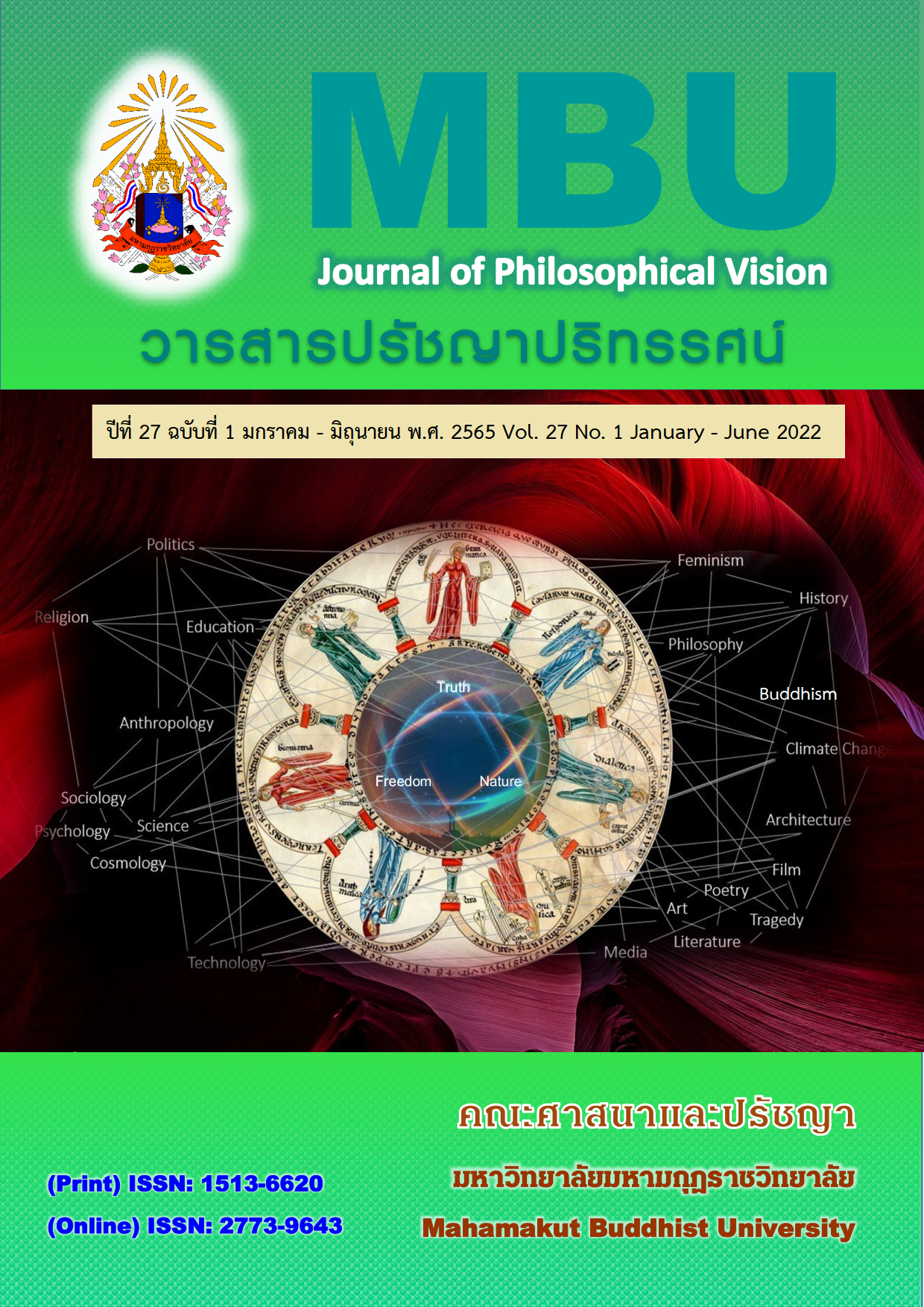Research On The Constituent Dimensions And Influencing Factors Of Employee Engagement Under The Background Of Organizational Change
คำสำคัญ:
Organizational Change, Employee Engagement, Influencing Factorบทคัดย่อ
Combined with the special period of organizational change, the relationship model between employee's organizational identity and employee's engagement is constructed, and the hypothesis is set, the research variables are defined, and the questionnaire design is completed. On the determination of influencing factors, the author divides influencing factors into three types: personal factors, organizational factors and social environment factors through reading, understanding and comprehensive analysis of relevant literature, and studies the relationship between each influencing factor and employee engagement at different levels. It shows that job attraction has the greatest predictive effect on employee engagement, followed by organizational support, interpersonal relationship and leadership support. Organizational support has the best predictive effect on employee engagement, followed by job attraction, leadership support and interpersonal relationship.
Downloads
เอกสารอ้างอิง
Al, A., Rpj B., & Sc, A. (2021). Employee Engagement and the Service Profit Chain in a Quick-Service Restaurant Organization. Journal of Business Research, 13(5): 214-225.
E.P. O’Connor, & Crowley-Henry M. (2019). Exploring the Relationship Between Exclusive Talent Management, Perceived Organizational Justice and Employee Engagement: Bridging the Literature. Journal of Business Ethics, 156(1): 1-15.
Ghosh, R., Shuck, B., & Cumberland, D., et al. (2019). Building Psychological Capital and Employee Engagement: Is Formal Mentoring a Useful Strategic Human Resource Development Intervention? Performance Improvement Quarterly, 32(1): 37-54.
Hur, W. M., Moon, T. W., & Choi, W. H. (2019). When are Internal and External Corporate Social Responsibility Initiatives Amplified? Employee Engagement in Corporate Social Responsibility Initiatives on Prosocial and Proactive Behaviors. Corporate Social Responsibility and Environmental Management, 26(4): 849-858.
Johansen, M. S., & Sowa, J. E. (2019). Human Resource Management, Employee Engagement, and Nonprofit Hospital Performance. Nonprofit Management and Leadership, 29(4): 549-567.
Keogh, M., Marin, D. B., & Jandorf, L., et al. (2020). Chi Time: Expanding a Novel Approach for Hospital Employee Engagement. Nursing Management, 51(4): 32-38.
King, A. T., Gontarz, J. A., & Wei, H. (2020). Employee Engagement and Absenteeism: A Step Towards Improving Patient Care. Nursing Forum, 55(3): 356-361.
Lee, J. Y., Rocco, T. S., & Shuck, B. (2020). What Is a Resource: Toward a Taxonomy of Resources for Employee Engagement. Human resource development review, 19(1): 5-38.
Long, T., Nguyen, P., & Nguyen T. Q., et al. (2021). Employee Engagement in Brand Value Co-creation: An Empirical Study of Vietnamese Boutique Hotels. Journal of Hospitality and Tourism Management, 48(1): 88-98.
Mani, S., & Mishra, M. (2019). Employee Engagement - Sine Qua Non for Organizations Growth. Strategic HR Review, 18(4): 187-188.
Men, L. R., O'Neil, J., & Ewing, M. (2020). Examining the Effects of Internal Social Media Usage on Employee Engagement. Public Relations Review, 46(2): 101880.
Muhammad, A., & Jamal, et al. (2019). Examining the Role of Employee Engagement in the Relationship Between Organizational Cynicism and Employee Performance. International Journal of Sociology and Social Policy, 39(1/2): 118-137.
Pradhan, R. K., Dash, S., & Jena, L. K. (2019). Do HR Practices Influence Job Satisfaction? Examining the Mediating Role of Employee Engagement in Indian Public Sector Undertakings. Global Business Review, 20(1): 119-132.
Rameshkumar, M. (2020). Employee Engagement as an Antecedent of Organizational Commitment – A Study on Indian Seafaring Officers. The Asian Journal of Shipping and Logistics, 36(3): 105-112.
Shuck, B., Kim, W., & Chai, D. S. (2021). The Chicken and Egg Conundrum: Job Satisfaction or Employee Engagement and Implications for Human Resources. New Horizons in Adult Education and Human Resource Development, 33(1): 4-24.
Siddiqui, D. A, & Sahar, N. U. (2019). The Impact of Training & Development and Communication on Employee Engagement – A Study of Banking Sector. Business Management and Strategy, 10(1): 23.
Srivastava, S., & Singh, S. (2020). Linking Personal Growth Initiative and Organizational identification to Employee Engagement: Testing the Mediating- Moderating Effects in Indian Hotel Industry. Journal of Hospitality and Tourism Management, 45(3): 79-89.
Thepa, P. C. A., Sutthirat, N., & Phanthanaphruet, N. (2022). Buddhist Philosophical Approach On The Leadership Ethics in Management. Journal of Positive School Psychology, 6(2): 1289-1297.
Wang, C, Xu, J, & Zhang, T. C., et al. (2020). Effects of professional identity on turnover intention in China's hotel employees: The mediating role of employee engagement and job satisfaction. Journal of Hospitality and Tourism Management, 45(2): 10-22.
Wieneke, K. C., Egginton, J. S., & Je Nkins, S. M., et al. (2019). Well-Being Champion Impact on Employee Engagement, Staff Satisfaction, and Employee Well-Being. Mayo Clinic Proceedings: Innovations, Quality & Outcomes, 3(2): 106-115.
Wu, Y. J., & Wu, T. (2019). Innovative Work Behaviors, Employee Engagement, and Surface Acting: A Delineation of Supervisor-Employee Emotional Contagion Effects. Management Decision, 57(11): 3200-3216.
ดาวน์โหลด
เผยแพร่แล้ว
รูปแบบการอ้างอิง
ฉบับ
ประเภทบทความ
สัญญาอนุญาต
ลิขสิทธิ์ (c) 2022 วารสารปรัชญาปริทรรศน์

อนุญาตภายใต้เงื่อนไข Creative Commons Attribution-NonCommercial-NoDerivatives 4.0 International License.
บทความวิชาการและบทความวิจัย ในวารสารฉบับนี้ ถือเป็นความรับผิดชอบของผู้เขียนเท่านั้น
สงวนลิขสิทธิ์ตามพระราชบัญญัติลิขสิทธิ์






